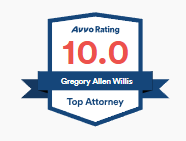A DUI conviction in Georgia is a serious matter with long-lasting consequences. While the penalties of a DUI conviction, such as fines and license suspensions, are widely known, many people overlook one of the most significant effects: an increase in car insurance premiums. For Georgia residents, the impact of a DUI on your car insurance rates can be substantial, and understanding the financial repercussions is crucial to preparing for the future.
The Initial Impact on Insurance Premiums 
Once you are convicted of a DUI in Georgia, your car insurance company will likely view you as a high-risk driver. Insurance companies assess risk when determining premiums, and a DUI conviction significantly raises the perceived risk of insuring you. As a result, you may see your car insurance rates increase dramatically. In Georgia, the rate hike can be substantial, with premiums sometimes doubling or even tripling, depending on factors like your driving history and the severity of the offense.
The reason for this increase in premiums is simple: insurance companies use your driving history as a predictor of future behavior. A DUI conviction indicates a higher likelihood of risky driving behaviors, such as impaired driving or poor decision-making behind the wheel. For insurers, this translates into a higher risk of accidents and, therefore, higher costs.
Duration of the Increased Premiums
In Georgia, a DUI conviction stays on your driving record for at least five years. During this period, your insurance company may continue to charge you higher premiums, even if you are no longer convicted of any additional offenses. Some insurance companies may reduce your rates after a few years, but they will often still remain elevated compared to drivers with clean records.
The length of time that your insurance premiums remain high depends on the insurer and your specific circumstances. Factors like the amount of alcohol in your blood at the time of the arrest, whether you caused an accident, and your overall driving history can all impact how long your rates stay inflated. The more severe the offense, the longer it might take for your rates to return to a more typical level.
He's the only lawyer in the State of Georgia to ever be recognized for all three of these accomplishments. Received the Samurai Lawyer Award for having gone to jail for a total of 4 days in order to save his own client Received the BadAss Lawyer Award for the biggest impact of all DUI lawyers in DUI defense in the country Received the vote of Georgia Lawyers as a Superlawyer in DUI Law for 10 straight consecutive yearsGreg Willis has been successful at defending DUI cases (over 93% without a conviction)
Insurance Companies and DUI Convictions
Each insurance company has its own policies regarding DUI convictions, and some may be more forgiving than others. Some insurers may be willing to work with drivers convicted of DUI, while others may refuse to renew your policy or cancel your coverage altogether. In the case of a canceled policy, you may need to seek insurance through a high-risk pool, which is often much more expensive than traditional insurance.
If you find yourself in this situation, it’s essential to shop around for a new insurance policy. Many insurers specialize in offering coverage to high-risk drivers, though these policies can be significantly more expensive than what you would pay with a clean driving record. Regardless of the insurer, the key takeaway is that your options for affordable car insurance will likely be limited after a DUI conviction.
What Can You Do to Lower Your Premiums After a DUI?
While a DUI conviction will certainly affect your car insurance premiums, there are a few strategies you can employ to manage the increase in costs. Though it may not entirely eliminate the financial impact, these steps can help reduce the severity of the premium hike.
First, consider shopping around for different insurance companies. While your current insurer may raise your rates, other companies might offer more competitive premiums for drivers with DUIs. Some insurers may offer discounts or lower rates to drivers who have completed certain programs, such as a defensive driving course. Defensive driving courses teach drivers how to reduce their risk on the road, and completing one may make you eligible for a discount with some insurance providers.
Additionally, increasing your deductible can help lower your premiums. A higher deductible means you’ll be responsible for more of the costs in the event of an accident, but it can also lead to lower monthly premiums. This is a trade-off you’ll need to consider carefully, as a high deductible could become a financial burden if you are involved in an accident.
Another option is to ask your insurance provider if they offer any other discounts that you can take advantage of. Some insurers provide discounts for drivers who have been accident-free for a certain period of time or for those who have specific safety features in their vehicles. Additionally, you may want to explore the possibility of obtaining an SR-22, which is a certificate that proves you have the minimum required car insurance. While it may come with a fee, it is sometimes necessary for drivers with DUIs, and it may help you maintain coverage.
Related Videos
Choosing a Georgia DUI Attorney
Defenses and Strategies to Defend a DUI Charge
The Role of SR-22 Insurance in Georgia
In Georgia, drivers who are convicted of DUI may be required to file an SR-22 with the state’s Department of Driver Services (DDS). An SR-22 is not an insurance policy itself, but rather a form that proves you have the necessary car insurance coverage to drive legally. If you’re required to file an SR-22, your insurance provider will send the form directly to the state.
Although an SR-22 is not a type of insurance, it can impact your car insurance rates. Filing an SR-22 typically means that your insurer will categorize you as a high-risk driver. As a result, you may face higher premiums. However, the SR-22 requirement is typically only for a specific period of time, usually around three years, after which you may no longer be required to file it.
Understanding the Role of DUI Conviction Severity in Your Premiums
Not all DUI convictions are treated equally by insurance companies. The severity of the offense, including your blood alcohol content (BAC) level at the time of the arrest and whether you caused an accident, can influence how much your insurance premiums will increase. For example, if your BAC was significantly over the legal limit or if the DUI led to property damage or injuries, your insurance premiums could rise even further than if you were arrested with a lower BAC and no accident.
Insurance companies may also factor in whether you have a history of DUIs. A second or third DUI offense can result in even higher premiums, as multiple offenses indicate a pattern of risky behavior. In contrast, a first-time DUI offender may face a more moderate increase in premiums, though this will still be significant.
Protecting a Professional License After a DUI and Refusal of a Blood Test Result: DUI Dismissed with No Jail Time and No Loss of License Challenging Admissibility of a .19 BAC Blood Test and Field Sobriety Evaluation Result: No Jail Time, No DUI on Record, No License SuspensionFeatured Case Results
The Long-Term Financial Impact of a DUI Conviction
It’s important to consider the long-term financial impact of a DUI conviction beyond just the increase in car insurance premiums. In addition to the increased insurance costs, you may also face fines, legal fees, and court costs associated with the DUI. If you are convicted of a DUI, you may be required to attend DUI education programs, which come with their own fees. Depending on the severity of the offense, you could also face the loss of your driver’s license, making it more difficult to commute to work or run errands, leading to additional costs.
The total financial impact of a DUI conviction can be overwhelming. In addition to the immediate costs, such as fines and legal fees, the long-term costs, including the higher insurance premiums, can last for several years. For this reason, it is important to carefully evaluate all of your options and take steps to mitigate the financial burden wherever possible.
A DUI conviction in Georgia can have a significant and lasting impact on your car insurance premiums. Insurance companies view DUI offenders as high-risk drivers, and as a result, they raise premiums to offset the potential for accidents. While the increase in premiums may last for several years, there are steps you can take to mitigate the financial burden, including shopping around for better rates, completing defensive driving courses, and considering an SR-22 filing.
If you are facing a DUI charge in Georgia, it’s essential to understand how it may affect your insurance and to work with a skilled DUI attorney. At Willis Law Firm, we are committed to helping you navigate the complexities of DUI charges and minimizing the long-term impact on your finances.
For personalized assistance with DUI defense, contact Willis Law Firm for a free consultation.













